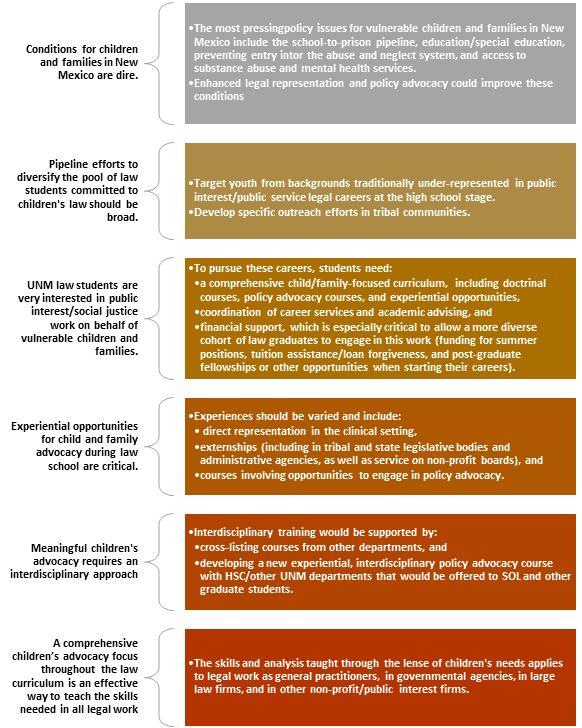Children's Law & Racial Equity Planning Grant
In 2014, the UNM School of Law received a planning grant from the W.K. Kellogg Foundation that focused on children’s law and racial equity in New Mexico. The goal of the planning grant was to design an initiative to improve outcomes for low income children by addressing racial inequities and other social determinants of health using these strategies:
- expanding and diversifying the pool of public interest attorneys who are specially trained to serve children through enhanced legal representation and policy advocacy,
- enhancing and coordinating existing programs, curriculum, and faculty at the Law School and the University to better train aspiring lawyers and policy advocates for children, and
- facilitating the placement of these students in child-focused public interest positions during and after law school through externships, scholarships, fellowships, and other training and career opportunities.
For more information about our work on children’s law and racial equity, please contact Cristen Conley.
Our Planning Grant Process
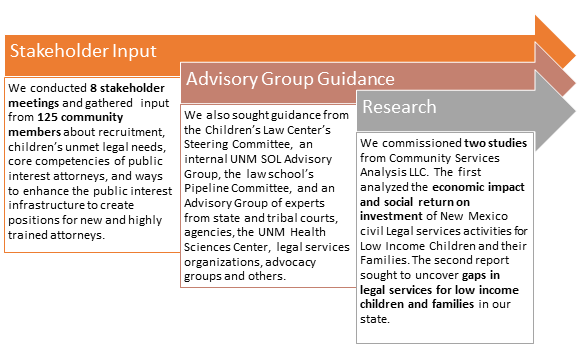
What We Learned from our Research
Civil legal services for low income children and families have an enormous impact and are cost-effective.
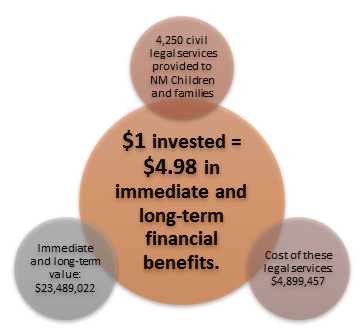
498% SOCIAL IMPACT RETURN ON INVESTMENT
Fiscal year that ended June 30, 2014.
Read the full report on economic and social impact return on investment.
New Mexico's Civil Legal Services Providers Assist Many Low Income Children and Families.
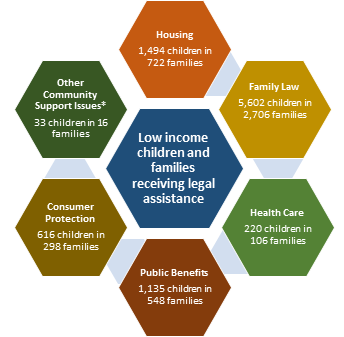
Fiscal year that ended June 30, 2014.
*Other Community Support Issues include: agricultural workers issues, special education/learning disabilities, student financial aid, and mental health issues.
There is an enormous gap in access to justice for New Mexico’s low income children and families.
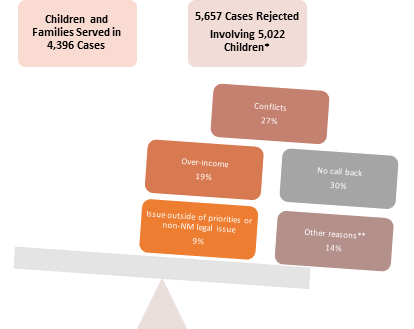
Fiscal year that ended June 30, 2014.
*Number of children in rejected is cases is a projected number.
**Other reasons include parties that decided not to continue, 3rd-party callers, parties already represented and seeking 2nd opinion, and non-NM residents.
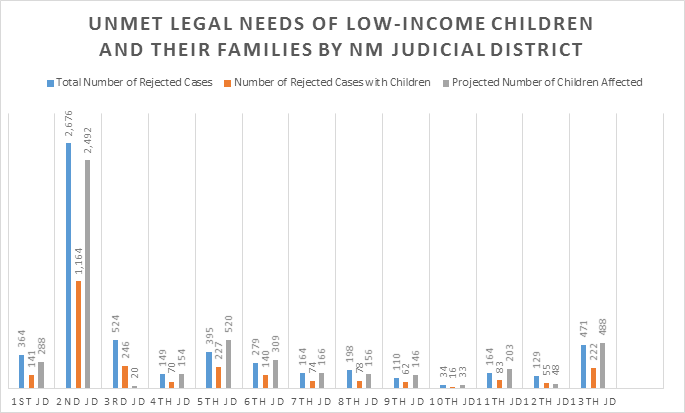
Fiscal year that ended June 30, 2014.
What We Learned from our Stakeholders and Advisors
A number of themes emerged during meetings with our advisory groups and stakeholders from civil legal services organizations, policy advocates, judges, legislators and legislative staffers, law students, Children’s Court practitioners, tribal leaders, service providers, and UNM faculty from other departments, as well as meetings with faculty and staff from within the SOL.
